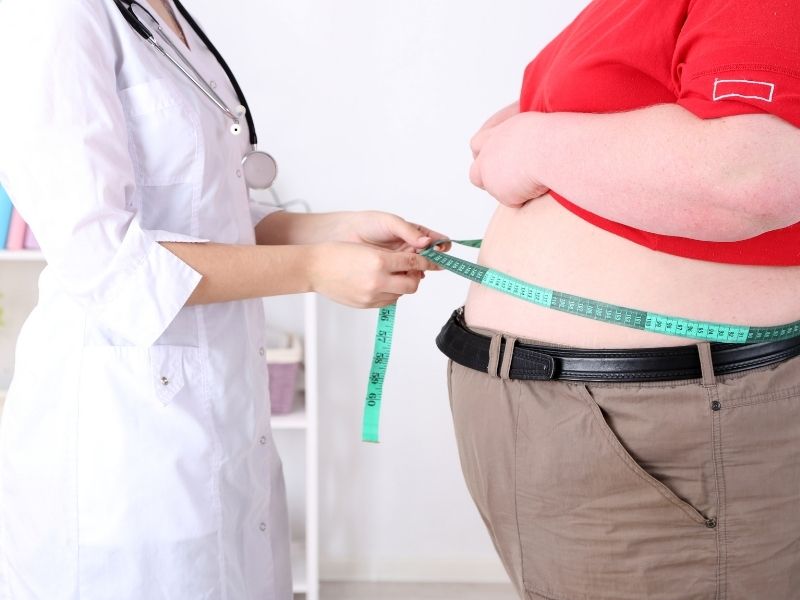Afterobesity surgery , a transition to a new lifestyle is made by shrinking the stomach. Overweight and obese people are aimed to have a healthy weight with this surgery. Obesity surgery helps patients lose a significant amount of weight. Many health problems also improve. For a healthy life after surgery, both nutrition and exercise should complement each other.
Diseases Caused by Obesity
Obesity is a disease that can lead to serious health problems. It can also lead to other health problems. The following diseases may have developed due to obesity:
- Type 2 diabetes,
- High blood pressure,
- Cholesterol elevation,
- Arteriosclerosis
- Heart disease
- Lung problems
- Joint problems
- Cancer,
- Psychiatric illnesses
How to Follow-up After Obesity Surgery?
Afterbariatric surgery, follow-up checks are very important for the surgery to be successful. Follow-up after bariatric surgery is performed to check the patient's postoperative health status, weight loss and lifestyle changes. The healing process is followed for the first 1-2 weeks after the surgery. The patient's wounds are checked and he/she is informed about nutrition and movement habits. Nutrition plan and diet recommendations are given for 1-3 months after the surgery. Recovery of comorbidities, if any, is monitored for 3-6 months after surgery. The patient should be followed up by a dietician and psychiatrist for a long time after the surgery.
Diet and Nutrition after Obesity Surgery
Diet and nutritionafter bariatric surgery is an essential lifestyle change after surgery. It is important for maintaining weight loss and ensuring the long-term success of the surgery. Patients need to adopt new eating habits and prefer healthy foods. The dietitian will prepare a special list for the patient. In the first few days after surgery, only liquids should be consumed. Food should be consumed frequently in small portions. Food should be eaten slowly and chewed thoroughly.

Exercise After Obesity Surgery
Exerciseafter bariatric surgery helps to boost metabolism, build muscle mass and maintain bone density. It can also help reduce obesity-related health risks such as heart disease, diabetes and high blood pressure. The first weeks after surgery can start with 10-15 minute walks. Your doctor can create an effective exercise program for you. Exercise supports weight loss, improves mood and has positive effects on overall health and quality of life.
Complications After Obesity Surgery
Complications afterbariatric surgery are present in this surgery as in every surgery. It is important for patients who will undergo bariatric surgery to be informed about these risks and complications before surgery. Some complications can be controlled with medication. More serious complications may require surgical intervention.
- There may be problems with blood pressure, heart rhythm or breathing during or after anesthesia.
- Bariatric surgery carries a risk of bleeding in the stomach and intestines.
- Infection may occur at the operation site, in the stomach or intestines.
- The risk of blood clots may increase.
- Vomiting and diarrhea are common complaints after surgery.
- Obesity surgery may reduce the absorption of some vitamins and minerals. Therefore, supplements may be needed.
Weight Loss After Stomach Surgery
The weight loss process afterstomach surgery may vary according to the person. The fastest weight loss period occurs within the first 6 months after surgery. In this period, patients can lose 50-60% weight compared to before surgery. Within 1-2 years, this rate can increase up to 70-80%. People with more body weight can lose more weight than those with less body weight. After the surgery, patients should pay attention to a healthy diet and regular exercise to accelerate the weight loss process.
Weight loss after gastric surgery may be a permanent condition. However, patients need to change their eating and exercise habits and make these habits their lifestyle. Failure to pay attention to diet can facilitate weight gain later on.

What to Do Before Obesity Surgery
Before obesity surgery, it is evaluated whether the patient is suitable for surgery. The general health status of the patient and any condition that may prevent surgery are taken into consideration. Blood tests, ECG, pulmonary function tests, endoscopy and colonoscopy can be performed before surgery. Obesity surgery is a treatment method that significantly improves the patient's quality of life. However, surgery is not without risks. Therefore, it is important that the patient is informed about the risks and benefits of the surgery before making a decision. Apart from these tests and information processes, the patient may need to stop smoking for a while and follow the diet determined by the doctor before surgery.
What to Do After Obesity Surgery
After obesity surgery, the doctor's instructions on nutrition, medication, diet and exercise should be followed. Doctor controls are important to detect any complications early and to follow the healing process. After obesity surgery, patients should eat less and more frequently. In the postoperative period, you can start light exercises with the approval of your doctor. If you need psychological help, you should seek support from a specialist.
Things to Consider After Obesity Surgery
There are some points to be considered afterobesity surgery. The most important factor to be followed is the diet. Since the size of the stomach will be reduced after surgery, patients should get used to eating less and more often. In addition, the consumption of certain foods and beverages is limited after surgery. Weight loss can also be supported by exercising regularly. For detailed information, you can make an appointment with Izmir Obesity Doctor Op. Dr. Türker Karabuğa.
- Follow the new diet.
- Take care to exercise.
- Adopt a healthy lifestyle.
- Follow your doctor's instructions.
When does the stomach heal after sleeve gastrectomy?
It may take 2-3 weeks for the wounds to heal after sleeve gastrectomy surgery. It may take 6-8 weeks for the stomach to heal completely.
What happens after sleeve gastrectomy?
Your diet completely changes after sleeve gastrectomy surgery. In the first weeks, you will be fed liquid, then pureed food and after the 1st month you will start to eat solid foods.
How many days should I rest after gastric surgery?
You should rest for 3-4 weeks after gastric surgery, but small walks should be taken during the rest period.
How much weight is lost in 1 month after sleeve gastrectomy?
In the first month after sleeve gastrectomy surgery, 10% of the person's weight before surgery can be lost.
What is forbidden after sleeve gastrectomy?
What is forbidden after sleeve gastrectomy surgery; sexual intercourse for the first 2 weeks, driving for a month, drinking alcohol for the first 6 months, heavy and strenuous activities for 2 months.








